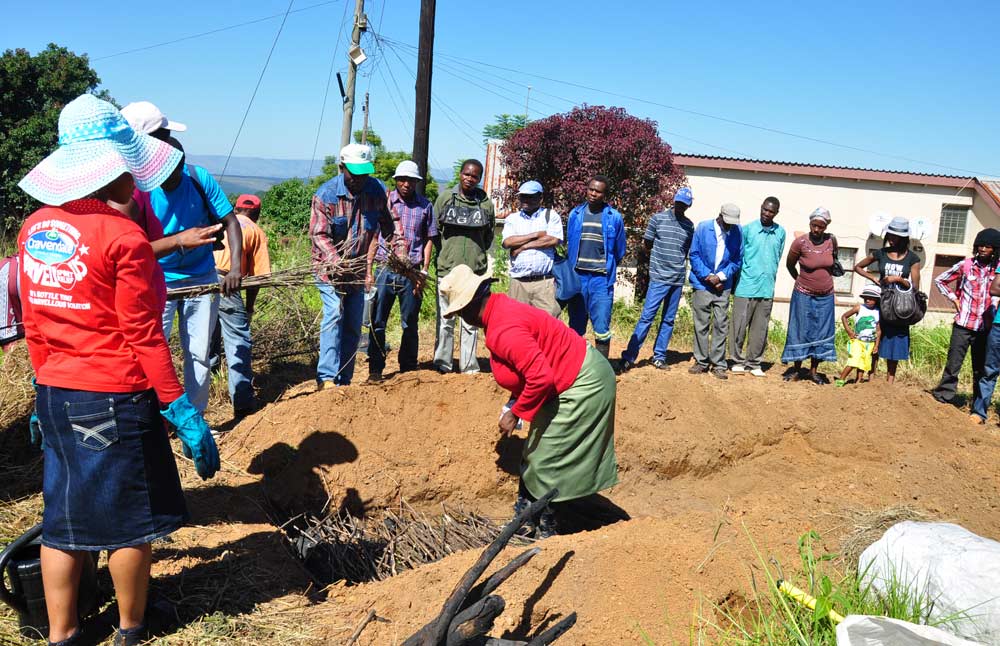The Ivory Foundation supports the association Dessine l’Espoir which develops projects for people living with HIV / AIDS, to provide them with nutritional support and enable them to access a healthy and balanced diet.
-In Swaziland, at Piggs Peak, a “demo-garden” was set up at the hospital’s testing center. It raises the awareness of HIV-positive patients to the benefits of self-production of vegetables by practices that are save water, and are respectful of the environment and human health.
3 days a week a facilitator cares for the garden and answers patients’ questions and encourages them to adopt healthy and balanced diet with home-grown products. A dietary supplement in vegetables from the garden and basic products is also given to the weakest patients, on prescription of the doctor.
In 2018, the parcel of the hospital was enlarged and a greenhouse was also built there. This large capacity greenhouse can accommodate up to 4000 plants simultaneously. Thanks to a system of openwork shelves, placed on the inside perimeter, the space is particularly profitable. Being located in the city center, a few meters from the “taxi-rank” (bus station), this greenhouse will provide seeds and seedlings to the various educational and community gardens of the association.
As part of the project “1 house -1 garden”, the weakest patients and their families are encouraged to develop a vegetable garden at home. The association provides logistical and financial assistance to start a fenced plot near their home.


-Another demo-garden has been implemented with “Fundzisa Live”, a local association of women living with HIV, where six coordinators have been trained and can train communities (= rural groups) upon request. The crops are used to prepare meals and are shared between members.
-6 facilitators were trained in several rural communities to teach communities permaculture and agro-ecology practices and help them establish family vegetable gardens.
